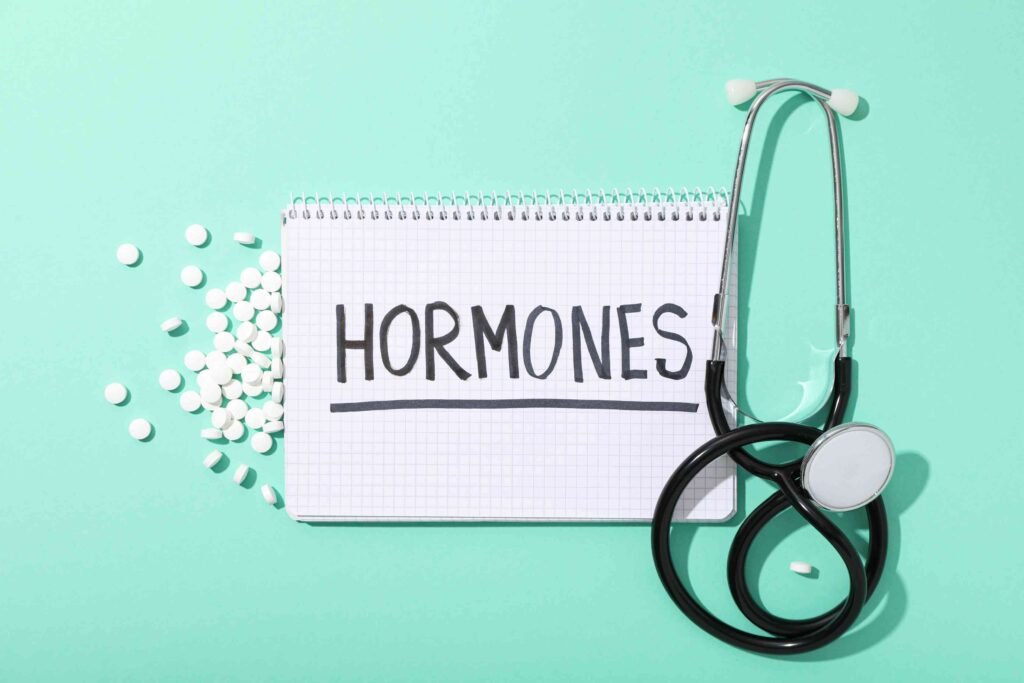The Role of Hormones in Fertility: Understanding Your Body
When it comes to fertility, the body is a complex, finely tuned system. Hormones play a crucial role in regulating reproductive processes and determining whether or not conception is possible. If you’re trying to conceive or simply interested in understanding how your body works, learning about the role of hormones in fertility is key. Hormones are chemical messengers that communicate between different parts of the body, ensuring everything functions smoothly — from ovulation to sperm production, and eventually, pregnancy.
In this blog, we’ll take a deep dive into the most important hormones in fertility, what they do, and how to better understand their role in your own reproductive journey.
What Are Hormones, and Why Are They Important?
Hormones are chemical substances produced by glands in the endocrine system, which includes the thyroid, pituitary gland, adrenal glands, ovaries, and testes. These hormones travel through your bloodstream to tissues and organs, carrying messages that tell your body how to function properly.
When it comes to fertility, hormones act as the body’s signal carriers. They regulate the menstrual cycle, egg and sperm production, implantation, and even pregnancy. In men and women alike, hormonal balance is crucial for optimal reproductive health. Even small disruptions can lead to infertility, irregular periods, or difficulty conceiving.
Understanding the role of hormones in fertility allows us to take a closer look at the factors influencing reproductive health, so you can make informed decisions regarding your fertility journey.
The Key Hormones in Fertility for Women
Women have a unique hormonal landscape that changes over the course of the menstrual cycle. Let’s explore the key hormones involved in fertility and how they influence your reproductive system.
1. Follicle-Stimulating Hormone (FSH)
Follicle-stimulating hormone, commonly referred to as FSH, is produced by the pituitary gland in the brain. It plays an essential role in the development of eggs within the ovaries.
At the start of the menstrual cycle, FSH levels rise to encourage the growth of follicles (small sacs containing immature eggs). Once a follicle matures, it releases an egg during ovulation. Without the right levels of FSH, the ovaries cannot produce viable eggs, making conception difficult.
FSH and fertility: Imbalances in FSH levels can lead to ovulation disorders, one of the leading causes of infertility in women. Elevated FSH levels may signal declining ovarian reserve (the number of viable eggs remaining in the ovaries), particularly in older women. On the other hand, low FSH levels might prevent the maturation of eggs, affecting the regularity of ovulation.

2. Luteinizing Hormone (LH)
Luteinizing hormone, or LH, works in tandem with FSH to regulate ovulation. LH surges just before ovulation, signaling the release of a mature egg from the ovary. This is known as the “LH surge,” and it typically occurs around the middle of your cycle, making it a key factor in determining when you are most fertile.
LH and fertility: Tracking your LH levels using ovulation predictor kits can help identify your most fertile days, as a spike in LH indicates that ovulation is imminent. If your LH levels are too low, it could prevent the release of an egg, making conception more challenging.
3. Estrogen
Estrogen is one of the primary female sex hormones and is responsible for regulating the menstrual cycle and preparing the body for pregnancy. Produced by the ovaries, estrogen promotes the growth and maturation of the uterine lining (endometrium) during the first half of the menstrual cycle. This is important because a thick, healthy uterine lining is essential for successful implantation of a fertilized egg.
Estrogen and fertility: High or low estrogen levels can disrupt the menstrual cycle and affect fertility. For example, estrogen dominance (excessive levels of estrogen) may cause irregular ovulation, while low estrogen levels can lead to thin endometrial lining, making it difficult for an embryo to implant.
4. Progesterone
Progesterone is another key hormone in fertility, playing an essential role in supporting early pregnancy. After ovulation, the empty follicle (now called the corpus luteum) produces progesterone to prepare the uterus for pregnancy by thickening the endometrial lining. If a fertilized egg implants, progesterone levels remain high to maintain the pregnancy. If pregnancy doesn’t occur, progesterone levels drop, triggering menstruation.
Progesterone and fertility: Low levels of progesterone can lead to a luteal phase defect, where the uterine lining isn’t properly prepared for implantation. This may result in difficulty getting pregnant or recurrent miscarriages. Women undergoing fertility treatments often have their progesterone levels monitored to ensure they are sufficient to support pregnancy.
5. Prolactin
Prolactin is best known for its role in lactation, but it also affects fertility. High levels of prolactin (a condition known as hyperprolactinemia) can interfere with the production of FSH and LH, leading to ovulation problems. Prolactin can inhibit the hormones necessary for ovulation and regular menstruation, making conception difficult.
Prolactin and fertility: Women with high prolactin levels may experience irregular or absent periods. If you’re trying to conceive and your periods are irregular, it might be worth checking your prolactin levels.
6. Testosterone
Though testosterone is typically thought of as a male hormone, women also produce it in small amounts. In women, testosterone is important for maintaining libido and supporting the health of the reproductive organs.
Testosterone and fertility: Elevated levels of testosterone in women can lead to conditions like polycystic ovary syndrome (PCOS), which is a common cause of infertility. PCOS is characterised by irregular periods, excess androgen (male hormones), and cysts on the ovaries, all of which can affect fertility.
The Role of Hormones in Fertility for Men
While women tend to get most of the attention when it comes to fertility, male reproductive health is equally important. In men, hormones also play a significant role in sperm production and overall fertility. Here are the key hormones to understand:
1. Testosterone
Testosterone is the primary male sex hormone and plays a major role in sperm production, sex drive, and overall male fertility. It is produced in the testes and regulated by the pituitary gland. Testosterone stimulates the development of sperm in the testes, and adequate levels are essential for maintaining healthy sperm count and motility.
Testosterone and fertility: Low testosterone levels in men can lead to decreased sperm production, erectile dysfunction, and reduced libido. If you’re experiencing fertility issues, it may be worth having your testosterone levels checked.
2. Follicle-Stimulating Hormone (FSH)
Just as in women, FSH plays a critical role in male fertility by stimulating the production of sperm in the testes. Without enough FSH, sperm production can slow down or stop altogether.
FSH and fertility in men: Low levels of FSH can lead to a reduced sperm count, which affects the chances of conception. FSH is often tested when assessing male fertility to ensure that sperm production is occurring as it should.
3. Luteinizing Hormone (LH)
In men, luteinizing hormone (LH) stimulates the production of testosterone in the testes, which is crucial for maintaining sperm production.
LH and fertility in men: A deficiency in LH can result in low testosterone levels, leading to reduced sperm production and fertility challenges. Like FSH, LH levels are often tested when evaluating male fertility issues.
How Hormonal Imbalances Affect Fertility
Now that we’ve explored the key hormones in fertility. It’s clear that any imbalance in these hormones can lead to difficulties with conception. Whether you’re male or female, your hormone levels must be finely balanced for reproduction to occur.
1. Ovulation Disorders
For women, the most common cause of infertility is ovulation disorders, which are often the result of hormonal imbalances. Conditions like PCOS, hyperprolactinemia, and thyroid disorders can disrupt the hormonal signals needed for ovulation, making it difficult to conceive.

2. Thyroid Disorders
The thyroid gland produces hormones that regulate metabolism, but thyroid disorders can also impact fertility. Hypothyroidism (an underactive thyroid) or hyperthyroidism (an overactive thyroid) can cause irregular menstrual cycles, ovulation problems, and in men, low sperm count.
3. Menstrual Irregularities
If your hormones aren’t balanced, you may experience irregular or absent periods. This can make it difficult to predict ovulation, which reduces your chances of conceiving.

Ways to Support Hormonal Balance for Fertility
While hormonal imbalances can seem overwhelming, the good news is that there are several ways to support your body’s hormonal balance and improve your fertility. Here are some tips to help keep your hormones in fertility working properly:
1. Maintain a Healthy Diet
Eating a balanced diet rich in nutrients like zinc, selenium, and vitamins A, C, and E can support hormone production and fertility. Omega-3 fatty acids found in fish like salmon and flaxseeds can also help regulate hormones.

2. Exercise in Moderation
Regular physical activity can help maintain a healthy weight and reduce stress, both of which are important for hormonal balance. However, excessive exercise can have the opposite effect, leading to menstrual irregularities and hormone imbalances.
3. Manage Stress
Chronic stress can elevate cortisol levels, which may interfere with reproductive hormones. Practices like meditation, yoga, and mindfulness can help reduce stress and promote hormonal balance.

4. Avoid Toxins
Certain environmental toxins, such as those found in plastics, pesticides, and cosmetics, can disrupt hormone production. Try to reduce your exposure to these toxins by choosing organic foods, using natural cleaning products, and avoiding plastic containers when possible.
Conclusion
The role of hormones in fertility is a complex yet fascinating topic. By understanding how these chemical messengers influence your reproductive health, you can take proactive steps to support hormonal balance and improve your chances of conception. Whether through lifestyle changes, stress management, or medical interventions, optimising your hormone levels is an essential part of your fertility journey.
If you’re struggling with infertility, consulting with a fertility specialist can provide more insight into your hormonal health and help guide you towards the right treatment.


